Contents
- Introduction to Artificial Intelligence (AI)
- Understanding Artificial Intelligence(AI) Systems
- How Artificial Intelligence(AI) Works
- Real-world Applications of Artificial Intelligence(AI)
- Challenges and Ethical Considerations in AI
- Artificial Intelligence(AI) Ethics and Regulation
- Future Prospects and Impact of AI
- Artificial Intelligence(AI) in Popular Culture and Media
- Summary
- FAQs
- Who is AI’s father?
- What’s Artificial Intelligence(AI)?
- AI daily life examples?
- AI’s role?
- Is Google using AI?
- AI’s essentials foundations?
- AI limitations?
- AI’s future?
- Can AI rule the world?
- Does AI have feelings?
- Is Artificial Intelligence(AI) safe?
- Can AI self-learn?
- Can AI be creative?
- Can AI replace workers?
Introduction to Artificial Intelligence (AI)
Artificial Intelligence, commonly referred to as AI, is a fascinating field that delves into the realm of creating intelligent machines capable of performing tasks that typically require human intelligence. It revolves around developing computer systems that possess the ability to learn, reason, and problem-solve, mirroring the human cognitive process.

Definition and Concept of AI
AI is the branch of computer science that focuses on creating systems that mimic human intelligence. It involves the development of algorithms and models that enable machines to perceive and interpret information, make decisions, and adapt to their environment. These systems can analyze vast amounts of data, recognize patterns, and even learn from experience.
Historical Background of AI
The origins of AI can be traced back to the mid-20th century when pioneers like Alan Turing and John McCarthy laid the groundwork for this revolutionary field. Turing’s concept of a “universal machine” and McCarthy’s invention of the Lisp programming language were pivotal in shaping the development of AI. Over the years, AI has evolved significantly, with breakthroughs in areas such as machine learning and deep learning propelling it to new heights.
Understanding Artificial Intelligence(AI) Systems
To comprehend the intricacies of AI, it is essential to grasp the basic components and different types of AI systems that exist today.

Basic Components of an AI System
AI systems comprise several core components that work harmoniously to enable intelligent behavior. These include perception, reasoning, knowledge representation, planning, and learning. Each component plays a vital role in the overall functioning of an AI system, allowing it to interact with its surroundings, process information, and make informed decisions.
Types of Artificial Intelligence(AI) Systems
In the world of AI, there are distinct categories of systems, each possessing varying levels of intelligence and capabilities.
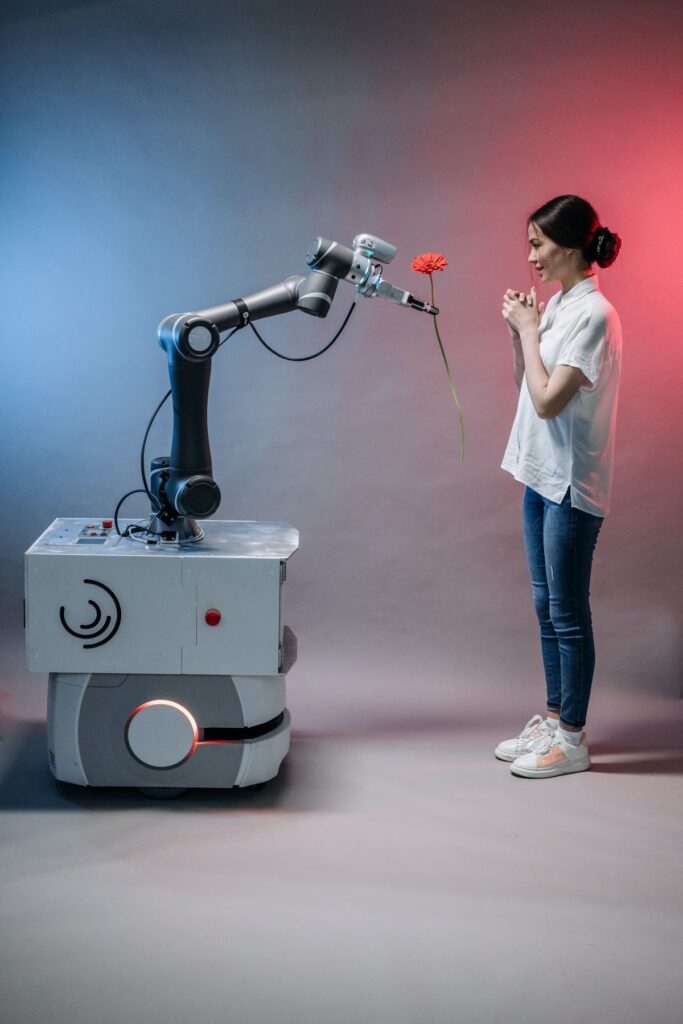

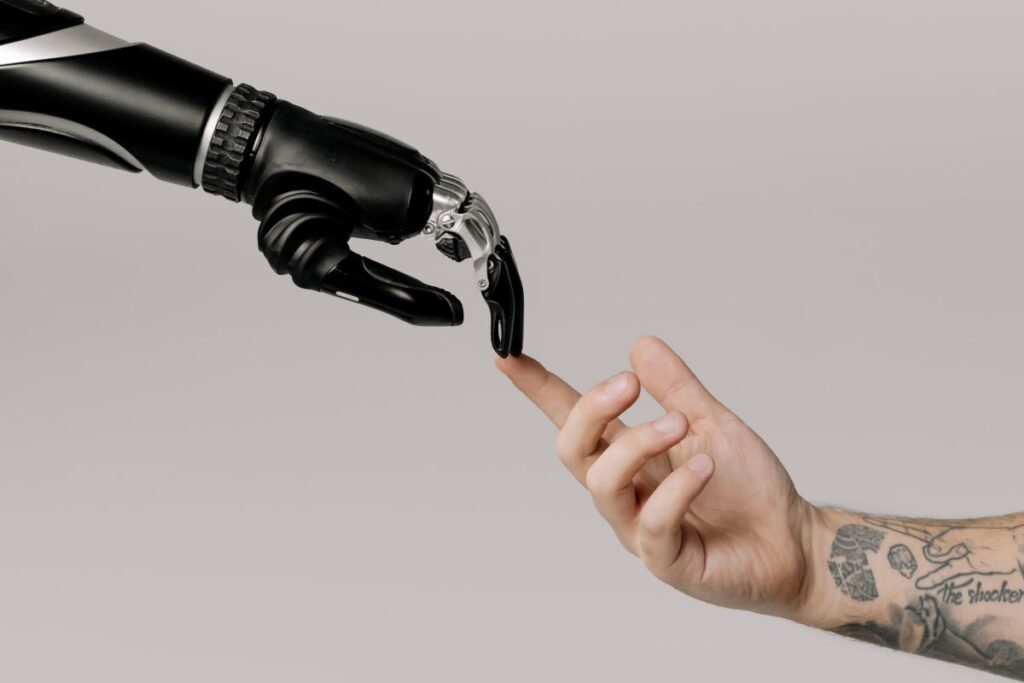
Image Source: Unsplash
Narrow AI(Weak AI)
Narrow AI refers to systems that excel at specific tasks but lack a comprehensive understanding of the broader context. These AI systems are designed to perform a single task efficiently, such as voice recognition or image classification. While they showcase impressive levels of accuracy and efficiency, their abilities are limited to the specific task they are programmed for.
General AI (Strong AI)
General AI, also known as Strong AI, represents the ultimate goal of AI research. It refers to systems that possess human-level intelligence and can perform any intellectual task that a human being can. These AI systems have the ability to reason, comprehend complex concepts, and adapt to various situations. However, achieving General AI remains a considerable challenge in the field.
Superintelligent AI
Superintelligent AI surpasses human intelligence and is hypothetical in nature. It represents the notion of AI systems that possess cognitive abilities far beyond what humans can comprehend. While Superintelligent AI remains a topic of speculation, its potential implications and impact on society raise intriguing questions and concerns.
How Artificial Intelligence(AI) Works
The underlying principles that drive AI systems rely on the concept of machine learning, which acts as the foundation for their operation.
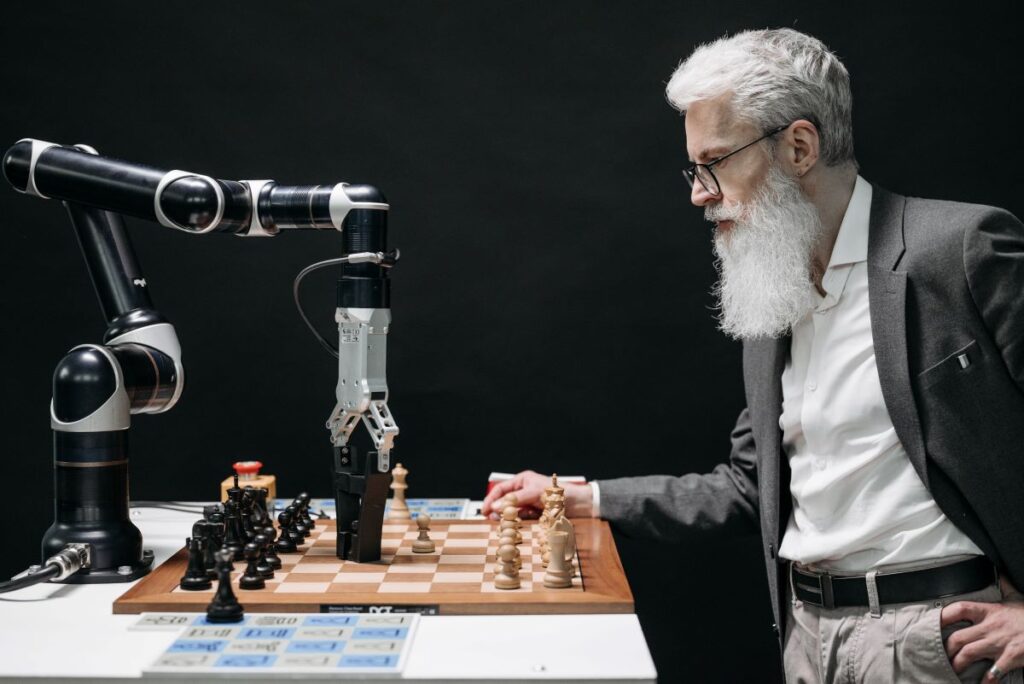
Machine Learning is the Core of AI
Machine learning, a subset of AI, enables systems to learn from data and improve their performance over time. It involves the development of algorithms that allow machines to automatically analyze patterns and make predictions or decisions without explicit programming.
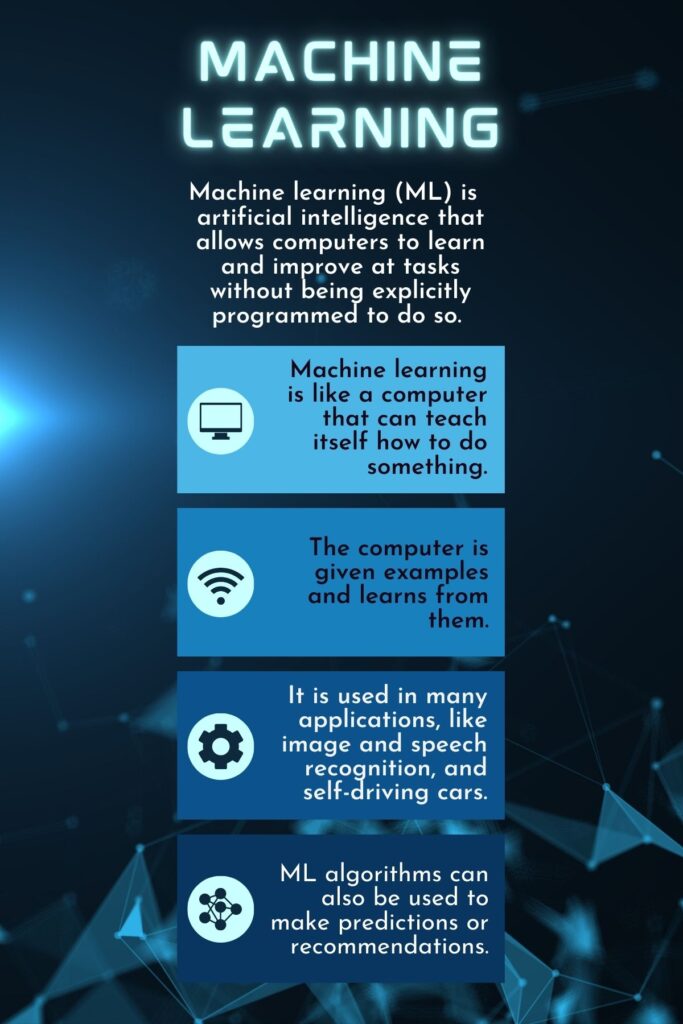
Supervised Learning
Supervised learning entails training an AI system using labeled data, where input-output pairs are provided to guide the learning process. Through this approach, the system learns to recognize patterns and make predictions based on the provided data.
Unsupervised Learning
Unsupervised learning involves training an AI system using unlabeled data, allowing the system to identify inherent patterns or structures present within the data itself. It is primarily used for tasks such as clustering, where the goal is to group similar data points together based on their inherent characteristics.
Reinforcement Learning
Reinforcement learning utilizes a reward-based system to train AI systems. The system learns through trial and error, receiving feedback in the form of rewards or penalties based on its actions. Over time, the AI system adapts its behavior to maximize the rewards it receives, ultimately reaching an optimal decision-making strategy.
Deep Learning: The Powerhouse of AI
Deep learning, a subfield of machine learning, has revolutionized the capabilities of AI systems. Inspired by the structure of the human brain, deep learning involves the use of neural networks composed of interconnected layers. These networks can process vast amounts of data, extract meaningful features, and build complex models that drive intelligent decision-making.
Real-world Applications of Artificial Intelligence(AI)
AI has permeated numerous industries, transforming the way we live and work. Its applications span a wide range of sectors, each harnessing its power to enhance efficiency, accuracy, and innovation.


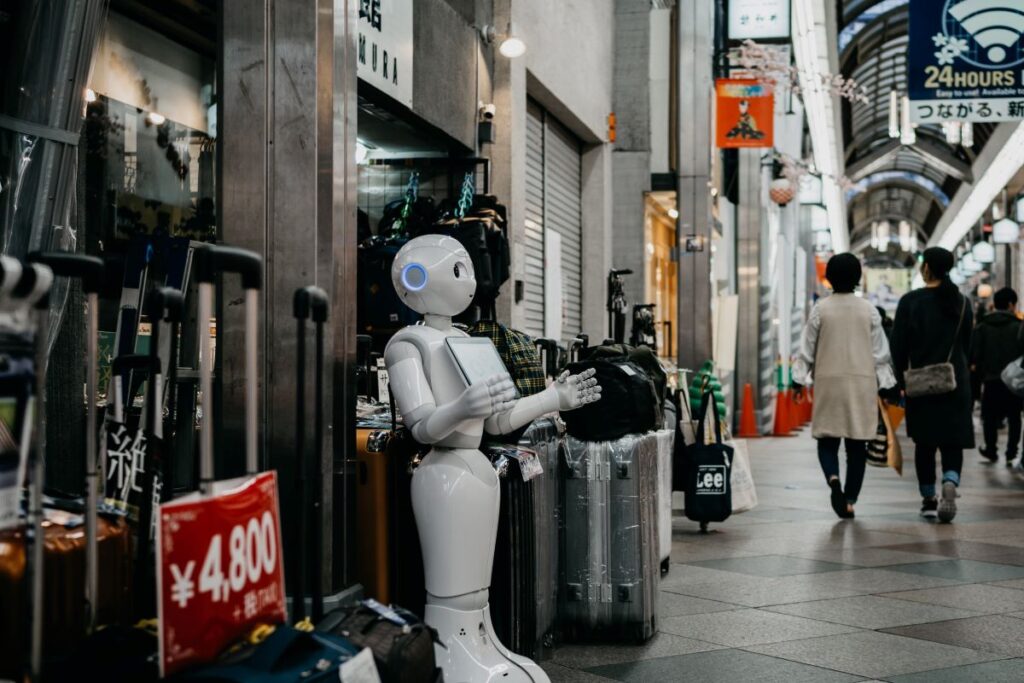
Image Source: pexels
AI in Healthcare
AI is revolutionizing the healthcare industry by enabling more accurate diagnoses, uncovering patterns in medical data, and assisting in the development of personalized treatment plans. AI-powered systems can analyze patient records, radiology images, and genomic data, and even assist in surgical procedures, ultimately leading to improved patient outcomes.
AI in Finance and Banking
In the realm of finance and banking, AI is streamlining processes, improving fraud detection, and enhancing customer experiences. AI systems can analyze vast amounts of financial data to predict market trends, automate routine tasks, and provide personalized financial advice or recommendations to customers.
AI in Transportation and Autonomous Vehicles
AI is at the forefront of transforming the transportation industry, particularly through the development of autonomous vehicles. These vehicles leverage AI algorithms to interpret sensor data, make real-time decisions, and navigate complex road conditions, paving the way for safer and more efficient transportation systems.
AI in Customer Service and Personal Assistants
AI-powered chatbots and virtual assistants are reshaping the customer service landscape. These intelligent systems offer personalized and efficient customer interactions, addressing queries, and providing support. Additionally, natural language processing capabilities enable virtual assistants to understand and respond to human language, simplifying daily tasks and enhancing productivity.
AI in Manufacturing and Robotics
AI is revolutionizing manufacturing processes by introducing automation and intelligent robotics. AI-powered machines can perform complex tasks with precision, optimize production lines, and adapt to changes in real time. Robotics, coupled with AI, is transforming industries such as automotive manufacturing, logistics, and warehouse management.
AI in Education
In the field of education, AI has the potential to facilitate personalized learning experiences, adaptive assessments, and intelligent tutoring systems. AI-powered educational platforms can analyze student performance, identify learning gaps, and tailor individualized instruction to address specific needs, thereby optimizing the learning process.
AI in Entertainment and Gaming
AI is making significant strides in the entertainment and gaming industry. From intelligent recommendation systems that suggest personalized content to game characters with sophisticated behaviors and realistic interactions, AI enhances the immersive experiences for users, amplifying enjoyment and engagement.
Challenges and Ethical Considerations in AI
While AI presents a plethora of opportunities, it is not without its challenges and ethical considerations. Addressing these concerns is crucial to ensure the responsible development and deployment of AI technologies.

Bias and Ethical Dilemmas
AI systems can inadvertently perpetuate biases present in data or algorithms, leading to biased outcomes or decisions. It is essential to mitigate these biases to prevent discrimination and ensure fairness in AI applications. Additionally, ethical dilemmas arise when AI systems are tasked with making decisions that involve human lives or sensitive information, forcing us to navigate complex moral considerations.
Security and Privacy Concerns
The widespread adoption of AI has raised concerns regarding data security and privacy. AI systems rely on vast amounts of data, and protecting this data from unauthorized access or misuse is of utmost importance. Safeguarding personal information and implementing robust cybersecurity measures are vital to maintaining public trust in AI technologies.
Job Displacement and Economic Impact
The integration of AI into the workforce raises concerns about potential job displacement and economic repercussions. As AI systems automate routine tasks and enhance efficiency, certain job roles may become obsolete. It is crucial to address the potential impact on employment and develop strategies to reskill and upskill the workforce to adapt to the changing job landscape.
Artificial Intelligence(AI) Ethics and Regulation
To ensure the responsible development and deployment of AI, establishing ethical guidelines and regulatory frameworks is imperative.
Importance of Ethical Guidelines and Standards
Ethical guidelines provide a framework for ensuring the ethical use of AI and mitigating potential risks. They emphasize fairness, transparency, and accountability in the design, implementation, and deployment of AI systems. Adopting these guidelines fosters trust and encourages ethical decision-making in the field of AI.
International Initiatives and Frameworks
Various international initiatives and organizations are working towards creating ethical frameworks and guidelines for AI. Efforts such as the European Union’s General Data Protection Regulation (GDPR) and the Partnership on AI aim to establish principles and standards that govern the development and deployment of AI technologies on a global scale.
Future Prospects and Impact of AI
AI is poised to play a pivotal role in shaping the future across numerous domains, offering immense potential benefits but also raising important concerns.
AI and the Fourth Industrial Revolution
AI’s advancements align closely with the Fourth Industrial Revolution, characterized by the fusion of technologies across physical, digital, and biological domains. The integration of AI into sectors such as healthcare, manufacturing, and transportation will drive unprecedented levels of efficiency, innovation, and economic growth.
Potential Benefits and Risks of AI Advancement
The continued advancement of AI holds the promise of revolutionizing various aspects of our lives. From improving healthcare outcomes to driving sustainable solutions, AI has the potential to address complex challenges. However, it also brings risks, such as job displacement, biased decision-making, and issues surrounding privacy and security. Striking a balance between harnessing the benefits and mitigating the risks is crucial for a sustainable AI-powered future.
Speculations on Superintelligence
The concept of superintelligent AI, with capabilities surpassing human intelligence, sparks debates and speculations about its implications for society. The emergence of such superintelligent entities raises questions about control, ethics, and potential risks. While the exact path toward superintelligence remains uncertain, exploring these possibilities allows us to consider potential scenarios and design robust safeguards.
Artificial Intelligence(AI) in Popular Culture and Media
AI has captured our collective imagination, influencing popular culture and media in various ways.
Depictions of AI in Science Fiction
From Isaac Asimov’s “I, Robot” to Philip K. Dick’s “Do Androids Dream of Electric Sheep?”, science fiction literature has portrayed numerous fascinating and often dystopian visions of AI. These imaginative works delve into the ethical, societal, and emotional implications of AI’s existence, provoking thought and inspiring discussions.
AI in Movies and Television
The silver screen has brought AI to life in captivating ways. Films like “Ex Machina” and “Her” offer intriguing explorations of human-AI relationships, raising questions about consciousness and emotions. Television series such as “Westworld” and “Black Mirror” provides thought-provoking narratives on the potential consequences and ethical dilemmas surrounding AI.
Public Perception and Misconceptions
AI’s portrayal in popular culture sometimes creates misconceptions and exaggerated expectations. While AI possesses incredible potential, it is crucial to separate fact from fiction and foster an informed understanding of its capabilities and limitations. Engaging in informed discussions and dispelling misconceptions allow for a realistic and balanced perspective on AI.
Summary


Image Source: pexels
Recapitulating the Advancements in Artificial Intelligence(AI)
Unveiling the wonders of Artificial Intelligence, we have delved into its definition, historical development, various AI systems, and its working principles. Furthermore, we have explored the profound impact of AI across numerous sectors, the challenges it poses, and the ethical considerations associated with its advancement. Looking towards the future, we recognize the immense potential of AI while acknowledging the need for responsible development and regulation. AI’s presence in popular culture and media forms a complementary narrative to the advancements in the field, ultimately creating a comprehensive understanding of the past, present, and promising future of AI.
The Ongoing Journey and Promising Future of AI
AI has advanced rapidly, changing many parts of our existence. AI computer systems can solve problems and learn from experience. This summary simplifies AI breakthroughs.
- First, Siri and Alexa let us create reminders and answer queries.
- Second, AI has transformed healthcare. AI systems can examine massive medical data to help doctors diagnose ailments and create individualized treatment regimens.
- AI is improving autonomous vehicles thirdly. Self-driving automobiles will improve safety and efficiency.
- Fourth, AI dominates finance and marketing. AI can predict market trends and improve investing decisions.
Finally, AI is improving natural language processing, helping machines comprehend and converse with humans.
In conclusion, AI’s achievements have made tasks easier, the industry more efficient, and future possibilities possible. AI’s potential and ethical issues must be addressed as it develops.
FAQs
Who is AI’s father?
John McCarthy, along with Alan Turing, Marvin Minsky, Allen Newell, and Herbert A.(Information Source: Wikipedia)
What’s Artificial Intelligence(AI)?
AI is the branch of computer science that focuses on creating systems that simulate human intelligence.
AI daily life examples?
AI is used in Siri, Google Now, Alexa, and Cortana.
AI’s role?
AI lets machines learn, adapt, and execute the human-like task
Is Google using AI?
Google AI research powers most of its products. Google Search and Google Translate use most of Google AI research.
AI’s essentials foundations?
Accountability.
Reliability.
Explainability.
Security.
Privacy.
AI limitations?
Little context.
No emotion.
Poor robustness.
AI’s future?
AI may enhance workplace efficiency, allowing workers to achieve more. As AI takes over dangerous or tedious duties, humans may focus on creative and empathetic labor.
Can AI rule the world?
AI cannot overthrow humanity. AI is powerful, but it helps humans, not replaces them. Humans make crucial judgments and employ AI to improve.
Does AI have feelings?
AI doesn’t feel. AI simulates behaviors and responses but doesn’t feel emotions. Emotions are human-specific.
Is Artificial Intelligence(AI) safe?
Yes, but considering ethics, privacy, and AI biases. AI can be useful and safe with supervision.
Can AI self-learn?
AI can progress with enough data and examples. Machine learning lets AIs evaluate data and find patterns. AI needs human instruction to learn.
Can AI be creative?
AI can produce innovative outputs, but it lacks actual creativity. AI can create new ideas or artwork based on data patterns, but it lacks human creativity.
Can AI replace workers?
AI automation creates new occupations and forces people to think creatively and critically.
